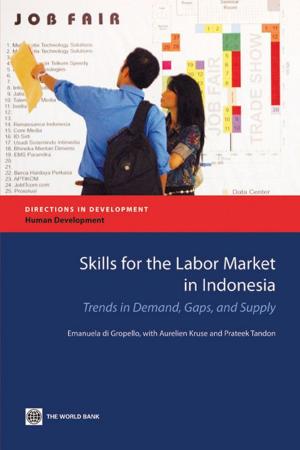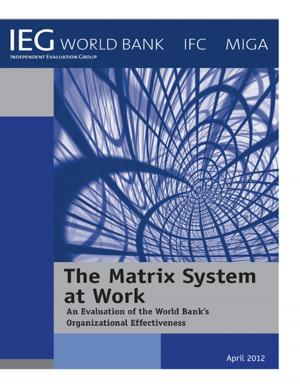Turmoil At Twenty: Recession, Recovery And Reform In Central And Eastern Europe And The Former Soviet Union
Business & Finance, Economics, Economic Conditions| Author: | Mitra Pradeep; Selowski Marcelo; Zalduendo Juan | ISBN: | 9780821381137 |
| Publisher: | World Bank | Publication: | October 30, 2009 |
| Imprint: | Language: | English |
| Author: | Mitra Pradeep; Selowski Marcelo; Zalduendo Juan |
| ISBN: | 9780821381137 |
| Publisher: | World Bank |
| Publication: | October 30, 2009 |
| Imprint: | |
| Language: | English |
Two decades since the fall of the Berlin wall, Central and Eastern Europe and the former Soviet Union, is experiencing the deepest contraction and is expected to see the weakest recovery in output among all emerging and developing economy regions a result of the global financial and economic crisis. Their commitment to open trade and financial integration as part of the transition from plan to market has brought many gains, but a combination of large global imbalances during this period and policy weaknesses in a number of countries made them vulnerable to the crisis. The global recession is expected to be deeper and more protracted than any in recent memory and will test the international community's commitment to both the middle income countries of emerging Europe with access to capital markets as well as the poorest countries of the former Soviet Union. Recovery from the crisis will require domestic policy reform in the countries and coordinated and sustained international collective action.After two decades, the business environment in transition countries increasingly resembles that of market economies at similar levels of per capita income. Strong private sector growth preceding 2008-2009 led to firms reporting infrastructure and skilled labor as being among the most important barriers to doing business for the first time since transition began. But rapid growth has also increased the costs to firms of weak market economy institutions, in part the product of legacy, especially in respect of the legal environment and corruption. Preparing for the recovery from crisis will require attention to these weaknesses in the enabling environment.
Two decades since the fall of the Berlin wall, Central and Eastern Europe and the former Soviet Union, is experiencing the deepest contraction and is expected to see the weakest recovery in output among all emerging and developing economy regions a result of the global financial and economic crisis. Their commitment to open trade and financial integration as part of the transition from plan to market has brought many gains, but a combination of large global imbalances during this period and policy weaknesses in a number of countries made them vulnerable to the crisis. The global recession is expected to be deeper and more protracted than any in recent memory and will test the international community's commitment to both the middle income countries of emerging Europe with access to capital markets as well as the poorest countries of the former Soviet Union. Recovery from the crisis will require domestic policy reform in the countries and coordinated and sustained international collective action.After two decades, the business environment in transition countries increasingly resembles that of market economies at similar levels of per capita income. Strong private sector growth preceding 2008-2009 led to firms reporting infrastructure and skilled labor as being among the most important barriers to doing business for the first time since transition began. But rapid growth has also increased the costs to firms of weak market economy institutions, in part the product of legacy, especially in respect of the legal environment and corruption. Preparing for the recovery from crisis will require attention to these weaknesses in the enabling environment.















